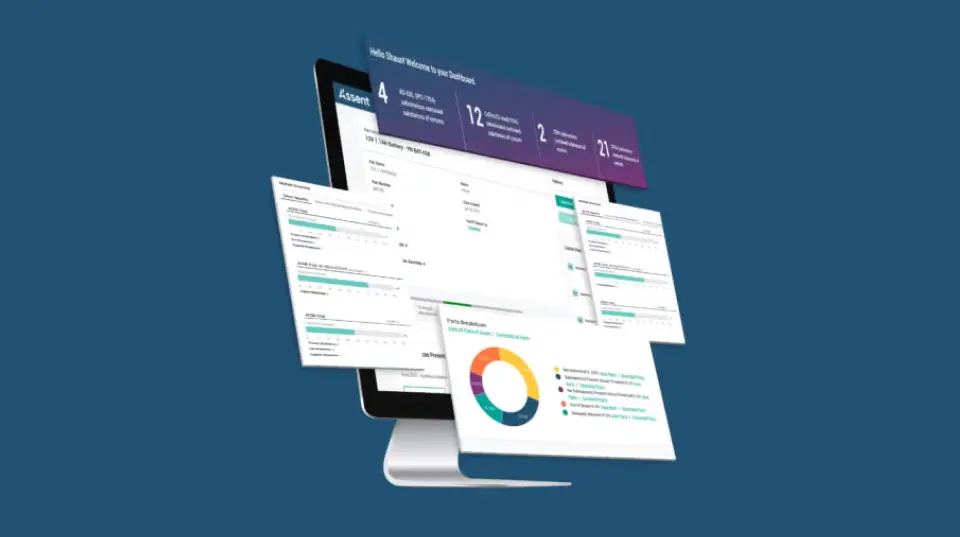The EPA can use TSCA to restrict the use of certain substances (e.g. asbestos insulation or lead paint) that are deemed harmful to human health or to the environment. In certain cases, treated articles that include those harmful substances may also be restricted. Non-compliance may result in penalties of up to $50,000 USD per violation per day or prison time.
Obligations regarding TSCA can be simplified into three key aspects. Companies must:
- Document the use of restricted substances in parts, materials, and products, and retain the documentation for a minimum of three years.
- Communicate the presence of banned substances to customers.
- Evaluate consumables (e.g. hydraulic fluid, seals, or gaskets) and maintenance parts used for U.S.-based manufacturing and warehouse operations to determine if they contain in-scope substances.
Evolving Requirements
In 2016, Congress updated TSCA as the Frank R. Lautenberg Chemical Safety for the 21st Century Act and gave the EPA a clear mandate to strengthen and reinforce this regulation. The revised act requires the agency to conduct risk evaluations of “high-risk substances.”
In January 2021, the EPA added five substances under Section 6(h) of TSCA. The agency set an aggressive timeline for companies to scope their supply chain, communicate the presence of the restricted substances to customers, and find alternatives to their use. The rules also prohibit the release of these substances into the environment.
In 2023, the EPA will introduce new PFAS reporting requirements that state manufacturers, including importers, must file an electronic report regarding PFAS uses, production volumes, disposal, exposures, and hazards for any year since the beginning of 2011.
Differences Within TSCA Restrictions
Not every substance restricted by TSCA is managed in the same way. For example, PIP 3:1, the most commonly used of the newly restricted substances, has its own deadlines for restriction. There are also disparate thresholds for substances and certain allowable use cases, such as limited use for the aerospace and defense sector. These nuances underscore the complexity companies must navigate to maintain TSCA compliance.
TSCA Enforcement
The EPA is responsible for the management and enforcement of TSCA. It has the authority to require reporting, recordkeeping, and testing from companies believed to be non-compliant. Penalties are calculated based on the severity and number of infractions. In 2020, Home Depot U.S.A. Inc. paid $20.75 million in penalties related to TSCA infractions.
Companies Subject to TSCA Requirements
There are few exceptions to TSCA requirements. If you manufacture, import into, or distribute within the U.S., you are likely in scope of the act. Companies not based in the U.S. that supply American companies may see an increase in customer requests for data related to the TSCA restrictions.
How to Meet TSCA Requirements
Deep data collection and validation are crucial to meeting TSCA requirements, but the most affected industries — such as electronics and industrial equipment manufacturing — have large and complex supply chains that make wide-scale collection difficult.
Assent automates data collection and validation to deep-map supply chains well beyond tier one suppliers, drastically reducing the time needed to get clean data from the upstream suppliers where PBTs frequently enter supply chains. The solution is guided by subject matter experts and supports industry-standard data exchange formats such as IPC-1752A and full material disclosures to streamline the extensive data efforts required for compliance.
Once data is collected, configurable reporting and intuitive dashboards provide at-a-glance risk assessments, so you can get real insights and communicate with your customers more efficiently.
This combination of leading technology and expertise provides the missing foundation that complex manufacturers need to continuously monitor TSCA risks and keep their products on the market. For more information about the Assent solution, book a demo.
Author’s note: Changes to the TSCA will continue as the EPA expands the legislation and industry responds. This article will continue to be updated to reflect
recent changes.















